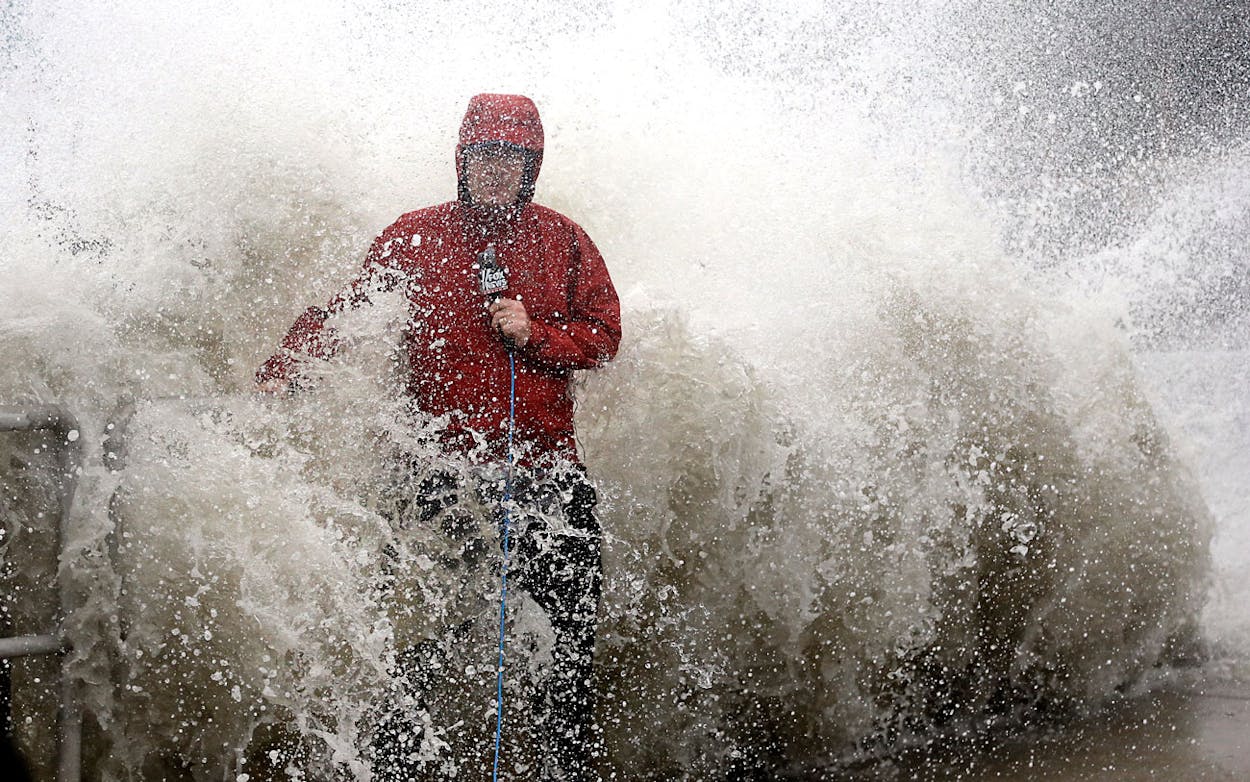Ike was the last major hurricane in Texas. Since 2008, a lot of experienced journalists have been bought out, laid off, or found another line of work. So, this is for the editors and reporters who have never had the opportunity to cover a big one—and it looks like Harvey will be. I put out a call Friday morning to the firehouse dogs of journalism for advice. Here is what we came up with together:
EDITORS
- Your first responsibility is to keep your team safe. Set up rendezvous points and check-in times.
- Cell phones will not work, at least not well, after the power goes out. Rent some satellite phones for your team.
- Try to figure out some drop zones to pick up stories, photos, and video in case the journalists can’t get their information out electronically.
- Remember, your reporters are like soldiers at war: they only see what is around them. It is your responsibility to keep them informed of the big picture.
REPORTERS
- Water is dangerous. Wind will kill you.
- Carry cases of water to drink. Have enough water to drink up to a gallon a day for every day you expect going out.
- When the power goes out, gas pumps don’t work. Fill up often.
- When the power goes out, cash registers and ATMs won’t work. Carry a lot of cash in small bills. One journalist recommended $500.
- Ball point pens don’t work in the rain.
- You will get wet. Have dry clothing handy, especially socks and underwear.
- Get a rain suit and rain boots. Waders are heavy. They will wear you out to walk. They make it difficult to go to the bathroom or to cool off if you make it indoors. Plus, if you are not wearing a belt around the outside of the waders, if you fall into a body of water, the waders will instantly fill up, take you to the bottom, and your career will be over.
- Don’t walk around in high water. As one journalist noted, during Tropical Storm Allison, manhole covers floated away and people fell into the service tunnels.
- Carry food. Protein bars, crackers, peanut butter, and dried fruit. If you have a camp stove, take it along with some cans of soup and a means of making coffee. After hours of being soaking wet, even in the heat and humidity, you may need hot liquids to bring your core temperature back up.
- Have a lot of plastic bags with ties. They come in handy.
- Carry Fix-a-Flat. Lots of Fix-a-Flat.
- Don’t use your own car. Rent one.
- Bring cell phone chargers that can adapt to the car and back-up batteries. And know that cell phones don’t work once the power goes out. Ask your editor for a satellite phone. (I spent a day with the head of U.S. Homeland Security during Ike and never could file because the cell phone was useless.)
- Bring three times as many batteries as you think you’ll need.
- Photographers and video journalists, if the wind shows trees bending, you don’t need to be out there.
- Pack baby wipes. And women’s sanitary napkins may have more uses than you think.
- Bring toilet paper and keep it dry. A shovel might also be handy.
- Buy mosquito repellant. After the storm, they become the living devil.
- It might not seem like it, but after the storm, the sun comes out and you will get burned. Bring a wide-brimmed hat and sunscreen.
- Get a hotel room and immediately fill the bathtub with water and have a small bucket handy. You will need this to flush the toilet.
- If you need glasses, bring an extra pair. Safety glasses protect your eyes from flying debris.
- Flashlights for when the power goes out.
- Radios or portable TVs that can run on batteries and pull their signals off the airwaves.
- Alcoholic beverages can open doors.






